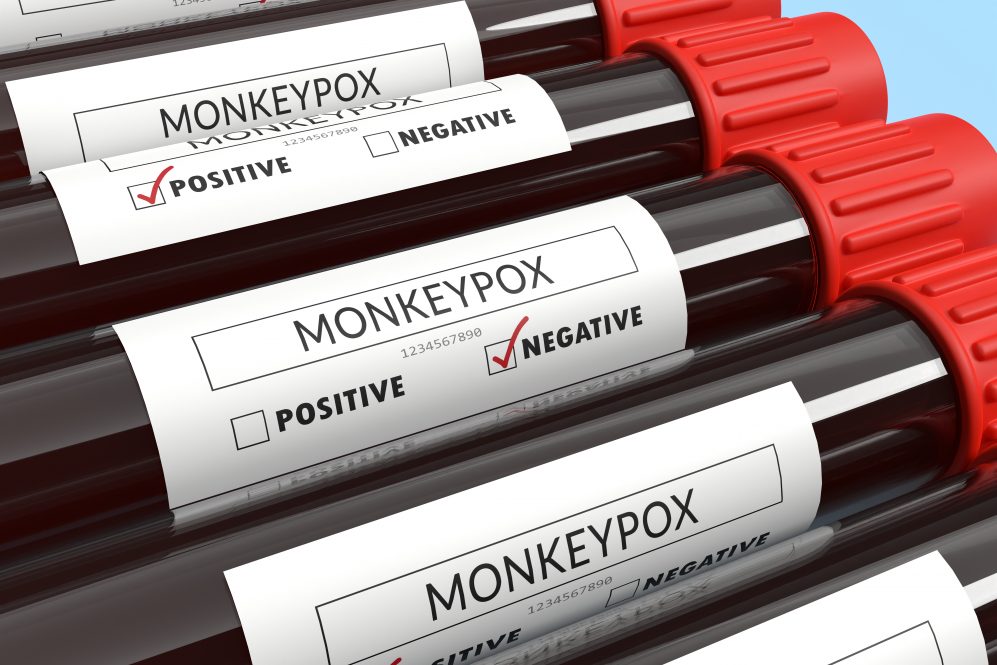With the increasing prevalence of monkeypox in the U.S. and other countries where it historically has been uncommon, Dr. David Banach, infectious diseases physician and hospital epidemiologist at UConn Health, offers some answers to common questions.
Who’s at most risk of catching monkeypox?
Monkeypox primarily spreads through close skin-to-skin contact, and in that way technically anyone could get it. Most of the current cases on record in Connecticut and the U.S. are among men who report being sexually active with other men. We point this out not to judge or stigmatize, but rather to make the best use of the available data from a public health standpoint. It’s important to report this detail, as not doing so would be a disservice to the communities this disease is impacting the most at this time.
Some good news: It doesn’t seem that people who are asymptomatic can spread it.
— Dr. David Banach
What are the signs and symptoms?
People who are infected with monkeypox often have a rash which can take different forms, including pimpling, blistering, or other lesions. Symptoms also can include fever, headache, muscle aches, chills, swollen lymph nodes, and fatigue. The illness typically lasts two to four weeks. Some good news: It doesn’t seem that people who are asymptomatic can spread it, at least based on our understanding at this time.

How do we treat monkeypox?
Most have mild illness and get better on their own, so the treatment is to isolate and provide supportive care, including pain control. For those with severe illness, or who are more likely to get severely ill or are immunocompromised, antivirals are available.
This virus has been around a while. Don’t we have a vaccine?
There are two vaccines that are available, although at this time they are in limited supply and not as widely available as COVID-19 and influenza vaccines are, for example. At this time the vaccine is restricted to those who meet certain criteria, either having had close personal contact with someone known to have monkeypox, or who self-report certain behaviors that might put them at higher risk of infection. The Connecticut Department of Public Health’s website has specific details on who’s eligible for the vaccine, and where it’s available. At this time we (UConn Health) are not a site that offers the monkeypox vaccine, however we can test for it, we do have antiviral medications to treat it when necessary, and we certainly can help refer people to a vaccination site.
Another thing about the monkeypox vaccine, which originally was developed for smallpox: Because of the virus’s incubation period, you have a window after exposure — ideally within four days, but up to 14 days — to take the vaccine before symptoms develop, and in that way you can prevent symptomatic infection or reduce the severity of symptoms if they develop.
What precautions do we need to take?
Avoid close contact with people who have visible skin lesions or a rash. Encourage them to get tested. Those who test positive are supposed to isolate based on CDC recommendations. If you are exposed to a person with monkeypox, call your health care provider to discuss whether a post-exposure vaccine is appropriate.
In a health care setting, we’ve developed specific protocols for personal protective equipment at UConn Health, and when followed, the risk of exposure is low. Hospitalization from monkeypox is pretty uncommon.



